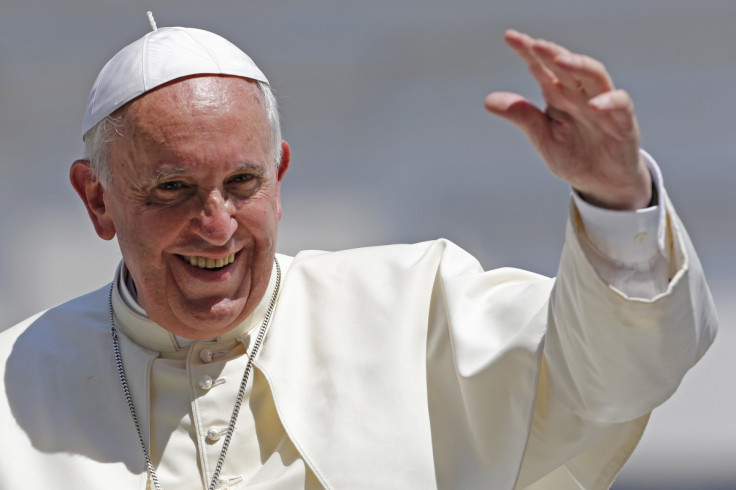Pope Expected to Relax Holy Communion Ban on Divorcees
Observers expect Pope Francis to revisit strict rules on divorcees at an international bishops' meeting in Rome

Hopes are high that Pope Francis could be set to loosen the Catholic Church's longstanding ban on divorced people receiving holy communion.
The pontiff will meet with international bishops in Rome next Sunday, and is expected to initiate a global conversation that could bring about changes to the rule, which excludes millions of devout Catholics around the world from the sacrament if they have divorced a spouse.
Last week, the Vatican announced a new commission tasked with reforming the Church's strict rules on marriage and divorce.
The commission said in a statement that it aims to change the process of granting annulments, with the objective of "simplifying its procedure, making it more streamlined, and safeguarding the principle of the indissolubility of matrimony".
Tina Beattie, a liberal Catholic theologian, said the stage has been set for a change, but warned that any reform could spark an "epochal, defining struggle".
"The ground has been well-prepared for a shift on the re-admission of divorced and remarried Catholics to the sacraments," Beattie told The Guardian.
"I don't think this will involve any change in doctrine. It will be a pragmatic shift which will put pastoral practice before doctrinal rigidity."
Reformists want the Pope to adopt an idea suggested by a German cardinal, Walter Kasper, in which Rome would follow the example of the Eastern Orthodox Church: allowing people who have divorced and remarried in civil ceremonies to undertake a period of penance, which would ultimately lift their ban on receiving holy communion.
An irregular family
Elio Cirimbelli, a director of a support centre for separated and divorced people, who himself is banned from taking communion, said: "It's very hard, let's put it that way. We have a Church that can be a mother, but sometimes it is a mother which not does embrace, but which punishes.
"I met Pope Francis in 2013 and I said: 'We are what the Catholic Church considers an irregular family, but we entrust our sufferings – and the sufferings of many people I meet as part of my work – to your hands.
"'But we hope and believe in a merciful church.' The Pope embraced me and said, 'No, the church will not abandon you.'"
Pope Francis has rapidly gained a reputation the Church's most radical and modernising pontiffs. He is the first Latin-American and non-European Pope, and has broken with many of the Church's archaic traditions, such as choosing a name from the long list of previous popes.
He also opted to shun the Apostolic Palace, the Pope's official residence, in favour of a simple room in a Vatican clerical guesthouse, and made his first public appearance as Pope in a plain white vestment rather than the more flamboyant ermine-lined robes of previous pontiffs.
Pope Francis has also constantly emphasised the Church's desire to be more compassionate and open, and has launched an overhaul of the Church's hierarchy and the scandal-ridden Vatican Bank, in order to bring it in line with international accounting standards.
© Copyright IBTimes 2025. All rights reserved.





















